第3章 PREFACE(3)
Its configuration is not very well known, but a granitic mountain chain, rising in Perak to ascertained heights of eight thousand feet, runs down its whole length near the centre, with extensive outlying spurs, and alluvial plains on both sides densely covered with jungle, as are also the mountains. There are no traces of volcanic formation, though thermal springs exist in Malacca. The rivers are numerous, but with one exception small, and are seldom navigable beyond the reach of the tides, except by flat-bottomed boats. It is believed that there are scarcely any lakes.
The general formation is granitic, overlaid by sandstone, laterite or clay ironstone, and to the north by limestone. Iron ores are found everywhere, and are so little regarded for their metallic contents that, though containing, according to Mr. Logan, a skillful geologist, sixty percent of pure metal, they are used in Singapore for macadamizing the roads! Gold has been obtained in all ages, and formerly in considerable quantities, but the annual yield does not now exceed nineteen thousand ounces. The vastest tin fields in the world are found in the western Malay States, and hitherto the produce has been "stream tin" only, the metal not having been traced to its veins in the rock.
The map, the result of recent surveys by Mr. Daly, and published in 1882 by the Royal Geographical Society, shows that there is a vast extent, more than half of the Malay Peninsula, unexplored. Its most laborious explorer confesses that "of the internal government, geography, mineral products, and geology of these regions, we do not know anything," and, he adds, that "even in this nineteenth century, a country rich in its resources, and important through its contiguity to our British possessions, is still a closed volume." "If we let the needle in, the thread is sure to follow" (meaning that if they let an Englishman pass through their territories, British annexation would be the natural sequence), was the reason given to Mr. Daly for turning him back from the States of the Negri Sembilan.
The climate is singularly healthy for Europeans as well as natives, although both hot and moist, as may be expected from being so close to the equator. Besides, the Peninsula is very nearly an insular region; it is densely covered with evergreen forests, and few parts of it are more than fifty miles from the sea. There are no diseases of climate except marsh fevers, which assail Europeans if they camp out at night on low, swampy grounds.
In 5 degrees 15' N., about the latitude of the northern boundary of Perak, at the sea-level the mean annual temperature is nearly 80 degrees, with a range of 20 degrees; at Malacca in 2 degrees 14' N. it is 80 degrees, with a range of 15 degrees; and at Singapore, in lat. 1 degree 17', it is 82 degrees, with a range of 24 degrees. Though the climate is undeniably a "hot" one, the heat, tempered by alternating land and sea breezes, is seldom oppressive except just before rain, and the thermometer never attains anything approaching those torrid temperatures which are registered in India, Japan, the United States, and other parts of the temperate zones.
The rainfall is not excessive, averaging about one hundred and ten inches annually, and there is no regular rainy season. In fact it rains in moderation all the year round. Three days seldom pass without refreshing showers, and if there are ten rainless days together, a rare phenomenon, people begin to talk of "the drought." Practically the year is divided into two parts by the "monsoons."* The monsoon is not a storm, as many people suppose, from a vague association of the word "typhoon," but a steady wind blowing, in the case of the Malay Peninsula, for six months from the north-east, bringing down the Chinamen in their junks, and for six months from the southwest, bringing traders from Arabia and India. The climate is the pleasantest during the north-east monsoon, which lasts from October to April. It is during the south-west monsoon that the heavier rains, accompanied by electrical disturbances, occur. The central mountain range protects the Peninsula alternately from both monsoons, the high Sumatran mountains protecting its west side from the south-west winds. The east side is exposed for six months to a modified north-east monsoon. Everywhere else throughout the almost changeless year, steadily alternating land and sea breezes with gentle variable winds and calms prevail, interrupted occasionally on the west coast during the "summer" by squalls from the south-west, which last for one or two hours, and are known as "Sumatrans." Hurricanes and earthquakes are unknown. Drenching dews fall on clear nights.
[*This word is recognized as a corruption by Portuguese and British tongues of the Arabic word "musim," "season."]